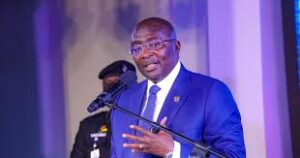Minority Expresses Frustration Over Budget Delays: ‘No Funds to Operate’

The Minority in Ghana’s Parliament has voiced growing frustrations regarding what it describes as prolonged delays by the Ministry of Finance in releasing essential funds needed for the smooth operation of parliamentary business. According to opposition lawmakers, this hold-up is seriously hindering the work of various parliamentary committees, many of which have reportedly been unable to carry out their mandated duties due to a shortage of financial support.
The issue was brought to the forefront during parliamentary proceedings on Friday, June 7, when Dominic Nitiwul, the Member of Parliament for Bimbilla and Chairman of the Assurances Committee, highlighted the financial constraints obstructing parliamentary activities. Speaking on the floor of the House, Mr. Nitiwul appealed directly to the Finance Minister to urgently address the funding shortfall that is crippling parliamentary functions.
“Parliament is now literally begging for money to enable its committees to function properly. As a committee chair, I have not been able to access funds required to perform our duties. We had planned a workshop essential to our work, but not even a cedi was released. Members across committees are fully aware that there are no funds available. So why aren’t we collectively demanding that the Finance Minister release the necessary funds?” Mr. Nitiwul questioned.
This statement sheds light on the challenges facing many parliamentary committees that rely heavily on budgetary allocations to organize meetings, conduct oversight functions, engage stakeholders, and carry out other critical activities necessary for legislative governance. The Minority has warned that continued delays in funding risk weakening Parliament’s ability to hold the executive accountable and effectively represent their constituents.
The call for action by the Minority reflects broader concerns about the pace and transparency of government financial disbursements to parliamentary bodies, especially at a time when Ghana faces complex economic pressures and public demand for accountable governance.
Majority Responds, Denies Financial Constraints in Parliament
In response to the Minority’s allegations, the Majority Chief Whip, Rockson Nelson Dafeamekpor, swiftly dismissed claims that Parliament was suffering from financial difficulties. He maintained that the government had fulfilled its financial commitments to Parliament and that lawmakers’ salaries and allowances had been paid in full.
Addressing Parliament, Mr. Dafeamekpor challenged the Minority to clarify what specific operations they believed were being hampered due to lack of funds. “They are alleging that Parliament is struggling to do what exactly? As Members of Parliament, our salaries and allowances have all been paid. The Finance Minister has released funds, and no one has officially raised concerns about not receiving payments,” he stated.
The Majority’s stance suggests a fundamental disagreement with the Minority on the extent of the funding issues within Parliament. While the Minority paints a picture of financial scarcity, the Majority asserts that the necessary resources have been provided and that any operational challenges faced by committees may stem from other factors.
Implications for Parliamentary Functioning
The dispute between the Minority and Majority highlights an important issue about budgetary processes and resource allocation for legislative activities in Ghana. Parliamentary committees are essential to the functioning of democracy, tasked with scrutinizing government policies, overseeing public expenditures, and ensuring laws reflect the needs of the populace. Without adequate funding, their ability to perform these duties effectively is compromised.
The concerns raised by the Minority also touch on the broader issue of how government financial management impacts governance institutions. Delays in disbursing funds can lead to inefficiencies, delays in policy oversight, and erosion of public trust in democratic processes.
Calls for Transparency and Timely Funding
As the debate continues, calls have increased for greater transparency and improved mechanisms to ensure that Parliament receives timely funding to support its work. Observers and civil society actors stress that clear communication from the Ministry of Finance about budget allocations and release schedules could help mitigate misunderstandings and build confidence in the system.
The Minority’s insistence that Parliament is “begging for money” resonates with concerns about the independence of the legislature and its capacity to operate without undue constraints.
Conclusion
The controversy over budget delays and funding shortages within Parliament underscores the critical need for a well-resourced legislature capable of fulfilling its oversight and representative roles. While the Majority dismisses claims of financial distress, the Minority’s warnings point to systemic challenges that could affect governance if not addressed promptly.
Ultimately, ensuring that Parliament functions efficiently and transparently is vital for Ghana’s democratic development, public accountability, and good governance.






